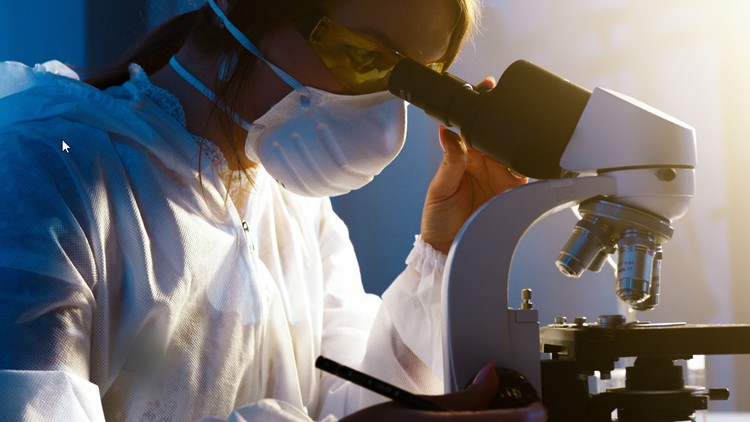
Master the Art of Investigation: Forensic Science Training
What you will learn
Add-On Information:
Note➛ Make sure your 𝐔𝐝𝐞𝐦𝐲 cart has only this course you're going to enroll it now, Remove all other courses from the 𝐔𝐝𝐞𝐦𝐲 cart before Enrolling!
- Unraveling the Truth: Dive into the rigorous scientific methodologies used to investigate crimes and analyze evidence, transforming fragments of information into clear narratives for justice.
- Crime Scene Command: Master systematic approaches to securing, documenting, and processing crime scenes, ensuring evidence integrity from initial detection to final preservation and analysis.
- Trace Evidence Triumphs: Meticulously identify, collect, and analyze microscopic evidence like fibers, hair, glass, and soil, revealing subtle but critical connections between suspects, victims, and locations.
- Biological Blueprint Decoding: Explore advanced techniques in serology and DNA profiling, including bloodstain pattern analysis, fluid identification, and genetic fingerprinting for undeniable links or exclusions.
- Chemical Conundrums: Investigate the intricate world of forensic chemistry, covering toxicology, drug analysis, arson investigation, and explosive residue analysis to identify substances and their impact.
- Physical Evidence Puzzles: Develop expertise in latent print examination, firearm and tool mark identification, and questioned document analysis, deciphering unique patterns that tell a compelling story.
- Digital Footprint Forensics: Learn methods for recovering, preserving, and analyzing electronic data from computers, mobile devices, and networks, crucial for modern criminal investigations.
- Expert Witness Edge: Gain essential skills in preparing comprehensive forensic reports and effectively presenting scientific findings in a courtroom setting, upholding the integrity and clarity of the evidence.
- Ethical Compass: Understand the critical ethical responsibilities and legal frameworks governing forensic practice, ensuring impartiality, accuracy, and adherence to the principles of justice.
- Analytical Acumen: Cultivate sharp critical thinking, meticulous observation, and precise analytical skills vital for interpreting complex data and drawing sound, evidence-based conclusions.
- Practical Proficiency: Engage in hands-on simulations and laboratory exercises, applying theoretical knowledge to real-world scenarios to build practical investigative and analytical competence.
- PROS:
- High-Demand Skills: Equip yourself with specialized, in-demand expertise applicable across various law enforcement, legal, and private sector forensic roles.
- Impactful Career Path: Contribute directly to justice, helping solve complex cases and provide clarity in often ambiguous circumstances, making a tangible difference.
- Interdisciplinary Foundation: Develop a broad scientific understanding, integrating principles from biology, chemistry, physics, and computer science in a practical, problem-solving context.
- CONS:
- Emotionally Challenging: Be prepared for exposure to disturbing case details and scenarios, requiring strong emotional resilience and professional detachment.
English
language